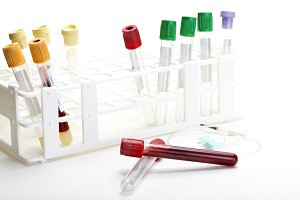Written by Greg Arnold, DC, CSCS. Participating subjects significantly reduced their total cholesterol and LDL levels after 4 weeks of daily supplementation with 5 grams of chlorella while the placebo group had an 11 % increase in total cholesterol and a 13.5% increase in LDL cholesterol.
 Cardiovascular diseases, including heart disease and stroke, are the first and third leading causes of death for both men and women in the U.S. They account for 1 in 3 of all U.S. deaths and cost our healthcare system $473 billion in 2009 (1). In addition to the cardiovascular disease risk factors of high blood pressure and high blood sugar (2), another risk factor is high cholesterol (3). For every 1 % increase in total blood cholesterol levels, the risk of coronary disease increases by approximately 2 % (4).
Cardiovascular diseases, including heart disease and stroke, are the first and third leading causes of death for both men and women in the U.S. They account for 1 in 3 of all U.S. deaths and cost our healthcare system $473 billion in 2009 (1). In addition to the cardiovascular disease risk factors of high blood pressure and high blood sugar (2), another risk factor is high cholesterol (3). For every 1 % increase in total blood cholesterol levels, the risk of coronary disease increases by approximately 2 % (4).
As a result, finding ways to optimize cholesterol levels to help minimize cardiovascular disease risk is very important. A 2016 study (5) involved 34 subjects (4 men, 34 women) aged 23 to 25 who, in addition to their usual diet, consumed 3 eggs per day, which added 510 milligrams of dietary cholesterol. The researchers then had one group of subjects consume 5 grams of chlorella with their egg consumption (17 subjects) or a placebo (17 subjects) per day for 4 weeks. Blood samples were drawn before and after the study.
After 4 weeks, dietary cholesterol intake per day was nearly identical in both groups (725.9 milligrams/day in the placebo group vs. 754.1 mg/day in the chlorella group, p = 0.312). But after 4 weeks, those in the chlorella group had a 2% increase in blood levels of total cholesterol (169.1 to 172.6 mg/dL) compared to an 11% increase in the placebo group subjects (163.7 to 181.8 mg/dL, p = 0.037). In addition, LDL cholesterol levels in the chlorella group increased by 0.8% (96.1 to 96.9 mg/dL) compared to 13.5% in the placebo group (88.1 to 100 mg/dL, p = 0.012). Statistical significance was not reached for HDL cholesterol levels (p = 0.404).
Citing “a wide range of bioactive substances that may act to optimize lipid metabolism” (6, 7), the researchers concluded that “chlorella may play a useful role in maintaining healthy serum cholesterol levels in the environment of free access to high-lipid foods, thus preventing or delaying the risk for cardiovascular disease.”
Source: Kim et al. A dietary cholesterol challenge study to assess Chlorella supplementation in maintaining healthy lipid levels in adults: a double-blinded, randomized, placebo controlled study. Nutrition Journal (2016) 15:54; DOI 10.1186/s12937-016-0174-9
© 2016 Kim et al. Open Access Creative Commons Attribution 4.0 International License (http://creativecommons.org/licenses/by/4.0/) (http://creativecommons.org/publicdomain/zero/1.0/ applies to the data made available in this article, unless otherwise stated.
Click here to view the full text study.
Posted November 28, 2016.
Greg Arnold is a Chiropractic Physician practicing in Hauppauge, NY. You can contact Dr. Arnold directly by emailing him at PitchingDoc@msn.com or visiting his web site at www.PitchingDoc.com.
References:
- “Cardiovascular Disease at a Glance” posted on the CDC website
- “What Are Coronary Heart Disease Risk Factors?” posted on the NIH website
- Wu T, Trevisan M, Genco RJ, Falkner KL, Dorn JP, Sempos CT. Examination of the relation between periodontal health status and cardiovascular risk factors: serum total and high density lipoprotein cholesterol, C-reactive protein, and plasma fibrinogen. Am J Epidemiol. 2000;151:273–82
- The Lipid Research Clinics Coronary Primary Prevention Trial results. II. The relationship of reduction in incidence of coronary heart disease to cholesterol lowering. JAMA 1984; 251:365-374.
- Kim S. A dietary cholesterol challenge study to assess Chlorella supplementation in maintaining healthy lipid levels in adults: a double-blinded, randomized, placebo-controlled study. Nutr J. 2016 May 13;15(1):54. doi: 10.1186/s12937-016-0174-9
- Ryu NH, Lim Y, Park JE, Kim J, Kim JY, Kwon SW, Kwon O. Impact of daily Chlorella consumption on serum lipid and carotenoid profiles in mildly hypercholesterolemic adults: a double-blinded, randomized, placebocontrolled study. Nutr J. 2014;13:57–64.
- Jung HY, Ok HM, Park MY, Kim JY, Kwon O. Bioavailability of carotenoids from chlorella powder in healthy subjects: A
